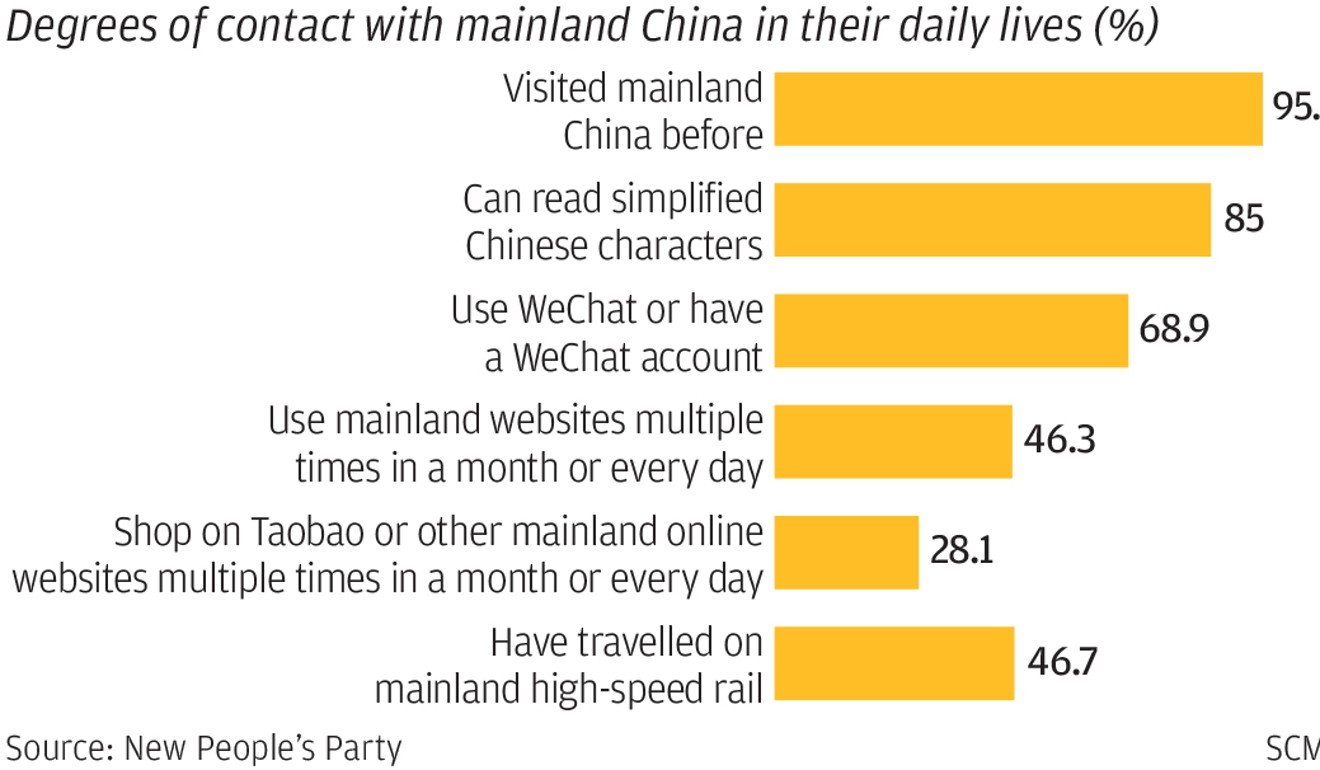
If ignorance is not the reason, why do young Hongkongers still dislike mainland China?
Findings from survey commissioned by pro-Beijing political party show that young people in the city watch mainland films and are knowledgeable about the country, but still cannot identify with it
Many young Hongkongers know about happenings in mainland China and watch films made there, but few are motivated to live or work across the border, and an even smaller group believes that both identities are “compatible”, a survey by a pro-Beijing political party has found.
The study by the New People’s Party showed that almost all of the 1,279 secondary school pupils polled had visited the mainland, close to nine in 10 could read simplified Chinese characters, and about seven in 10 used the popular WeChat app.

Close to eight in 10 watched films or TV shows produced on the mainland often, with one in 10 saying they did so every day or almost daily.
What identity crisis? Hongkongers confront questions of belonging after Legco oath saga
But just 22 per cent would opt to live on the mainland, with only about 26 per cent saying they would work there.
Professor Lui Tai-lok, director of Education University’s Academy of Hong Kong Studies, which conducted the survey, said the findings did not support the thinking that young Hongkongers did not like China or did not want to be Chinese because they were ignorant.
The question we or the government should ask is: why do they not like the country given their understanding of it?
“We have heard many adults say that our young people should go to the mainland more to see for themselves the rapid development of our country. But the poll showed that they have had much contact with mainland society and culture and know what is going on in China.”
While the poll did not ask students if they would identify themselves as “Hongkonger” or “Chinese”, they were asked if the two identities could be “compatible” on a scale of 0 to 10, with 0 being “absolutely incompatible”.
About 65 per cent of respondents gave a score of 5 and below – with 8.7 per cent of students choosing 0. Close to 10 per cent of students picked 10.
“The question we or the government should ask is: why do they not like the country given their understanding of it?” Lui said.
The study was conducted between last October and this February with Form Four and Form Five pupils from 11 schools. About 79 per cent of respondents were born in Hong Kong, while about 20 per cent were born on the mainland.
Poll finds fewer Hongkongers identifying as Chinese, thanks to Occupy
“They are young people who are about 16 or 17 years old. It is natural that they would like to stay home more.
“In general, only those in developing countries would be eager to go out to work or live a better life. And Hong Kong is a very much developed economy,” Ip said.

